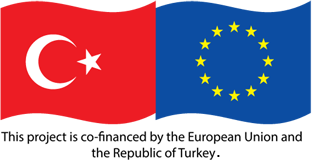About the Project
Türkiye has strengthened its connections with domestic and international production and consumption centers with its investments in transportation infrastructure in recent years. Trans-European Transport Network (TEN-T), Caucasus and Middle East connections were developed, projects were implemented for high-speed train lines, divided roads, airports, and container ports.
One of the important topics of the transportation sector is EU harmonisation studies. Legislative harmonisation efforts were accelerated when Türkiye became a candidate country in 1999. In line with the objectives in the EU legislation harmonisation studies, progress has been made in the National Programs (NPAA) published in 2001, 2003 and 2008 and the 2016-2019 National Action Plan, and today, harmonisation with the EU legislation has been achieved in the main headings of transportation. Currently, the National Action Plan for EU Accession has been updated to cover the years 2021-2023, and harmonisation with the EU acquis has been put forward in a concrete way within the framework of legislative harmonisation and institutional/administrative structure.
In the EU and in our country, due to the technical progress in the field of transportation and the increased sensitivity in environmental issues in recent years, new strategies have been produced and it has become necessary to make arrangements in accordance with these strategies. In this direction, the Ministry of Transport and Infrastructure continues its legislative harmonisation studies at a great pace in order to adapt to the planned changes and to create a legal infrastructure in line with international standards.
The ATLAS Project is one of the most significant indicators of Türkiye’s determination in harmonisation with the EU and has been designed as the most comprehensive legislative harmonisation study between Türkiye and the EU in the field of transportation.
Differences and gaps between EU legislation and Turkish transport legislation will be determined within the scope of the project, and gap-plugging proposals will be made for each of the existing regulations in order to ensure harmonisation. The relevance of the recommendations will be supported by regulatory impact assessment studies, and as a result, a Strategy Report and Action Plan will be prepared for legislative alignment.
With an in-depth perspective on transportation legislation, which has a dynamic and comprehensive structure, the Project will examine the following horizontal themes.
- Internal Market, State Aid, and Competition
- Safety and Security
- Social Legislation
- Environment and Climate Change
- Transport Synergy
- Other Sectoral Issues



